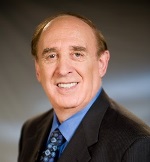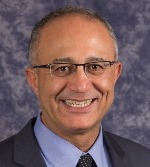The Great Project Management Accelerator
Introduction to the Series
and
The Maturing Project Sponsorship
SERIES ARTICLE
By Dr. Harold Kerzner
Senior Executive for Project Management
The International Institute for Learning (IIL)
New York and Maryland, USA
and
Dr. Al Zeitoun, PgMP, PMI Fellow
Global Future of Work Executive
The International Institute for Learning (IIL)
New York and Florida, USA
Introduction to the Series
Executives in both the public and private sectors worldwide are beginning to recognize the full benefits that effective project management can bring to their organizations and are willing to make the necessary changes, especially critical changes in culture. As such, the landscape for project management is changing and this series is expected to address many critical future business culture elements from the lens of the strategic role explosion for project management. The next decade is expected to rely on project management to significantly improve the performance excellence of the organizations that take the time to understand and implement them.
The series will shed light on a multitude of cultural issues, digital enablers, portfolio management, and the reinvention of project leaders of the future. Major changes to project management will occur in this coming decade due to much of the new material and thought leadership that PMI and other professional organizations have been advocating in Standards for Project Management and the accompanying continuous worldwide growth in the strategic role project management will play.
Most of the critical future-of-work changes that are expected to happen through this decade can be clustered into themes around project management as a strategic vehicle, changes in the role of project managers, the criticality of the project leadership, and the correlation between transparency and autonomy in the delivery cultures and business excellence. This series will explore many of these business culture attributes.
The Maturing Project Sponsorship
Project management educators and practitioners promote the value that effective project sponsorship can bring to projects. Unfortunately, there are many instances where, despite starting out with good intentions, ineffective sponsorship occurs and leads to project disasters and even project failures. In this article, we will discuss several of these ineffective sponsorship situations and what can be done to improve project sponsorship practices going forward.
DEFINING SUCCESS
For more than 40 years, articles and books have appeared extolling the successes in capturing project and organizational value that can be achieved from the effective implementation of project management practices. While many companies have achieved and maintained high levels of project management success, other companies have limited the continuous investment needed in project management practices to make the success sustainable (Chandler & Thomas, 2015; Thomas & Mullaly, 2008).
There are many definitions of success in a project management environment. The reason for the disparity is that most companies do not have a clear understanding of the factors that contribute to success (Bryde, 2008). For simplicity’s sake, project management success and the value it brings to an organization can be described in the following areas: (1) project success, (2) repeatable use of processes, tools, and techniques, (3) impact on the firm’s business model, and (4) business results. These areas have been adapted from components in the model used by Thomas and Mullaly (2008).
- Project success has been traditionally defined by completing a deliverable within the triple constraints of time, cost, and scope followed by customer acceptance. The customer could be internal or external to the organization.
- Repeatable use of the project management processes, tools, and techniques is usually a characteristic of success when companies mandate a one-size-fits-all methodology approach for all of their traditional or operational projects.
- Business model success measures the amount of new business generated or an increase in market share because of successful use of project management. It can also measure the effectiveness of portfolio management practices and use of project management offices (PMOs).
More…
To read entire paper, click here
How to cite this paper: Kerzner, H. and Zeitoun, A. (2022). The Connected Future Business Culture: The Great Project Management Accelerator; Introduction to the Series and The Maturing Project Sponsorship, PM World Journal, Vol. XI, Issue I, January. Available online at https://pmworldlibrary.net/wp-content/uploads/2022/01/pmwj113-Jan2022-Kerzner-Zeitoun-Introduction-and-the-maturing-project-sponsorship-series1.pdf
About the Authors

Harold Kerzner, Ph.D., MS, M.B.A
Senior Executive Director for Project Management
International Institute of Learning
New York & Florida, USA
![]()
Dr. Harold Kerzner is Senior Executive Director for Project Management for the International Institute for Learning (IIL). He has an MS and Ph.D. in Aeronautical and Astronautical Engineering from the University of Illinois and an MBA from Utah State University. He is a prior Air Force Officer and spent several years at Morton-Thiokol in project management. He taught engineering at the University of Illinois and business administration at Utah State University, and for 38 years taught project management at Baldwin-Wallace University. He has published or presented numerous engineering and business papers and has had published more than 60 college textbooks/workbooks on project management, including later editions. Some of his books are (1) Project Management: A Systems Approach to Planning, Scheduling and Controlling; (2) Project Management Metrics, KPIs and Dashboards, (3) Project Management Case Studies, (4) Project Management Best Practices: Achieving Global Excellence, (5) PM 2.0: The Future of Project Management, (6) Using the Project Management Maturity Model, and (7) Innovation Project Management.
He is a charter member of the Northeast Ohio PMI Chapter.
Dr. Kerzner has traveled around the world conducting project management lectures for PMI Chapters and companies in Japan, China, Russia, Brazil, Singapore, Korea, South Africa, Canada, Ireland, Germany, Spain, Belgium, Poland, Croatia, Mexico, Trinidad, Barbados, The Netherlands, Sweden, Finland, Venezuela, Columbia, United Arab Emirates, France, Italy, England, and Switzerland. He delivered a keynote speech at a PMI Global Congress on the future of project management.
His recognitions include:
- The University of Illinois granted Dr. Kerzner a Distinguished Recent Alumni Award in 1981 for his contributions to the field of project management.
- Utah State University provided Dr. Kerzner with the 1998 Distinguished Service Award for his contributions to the field of project management.
- The Northeast Ohio Chapter of the Project Management Institute gives out the Kerzner Award once a year to one project manager in Northeast Ohio that has demonstrated excellence in project management. They also give out a second Kerzner Award for project of the year in Northeast Ohio.
- The Project Management Institute (National Organization) in cooperation with IIL has initiated the Kerzner International Project Manager of the Year Award given to one project manager yearly anywhere in the world that demonstrated excellence in project management.
- The Project Management Institute also gives out four scholarships each year in Dr. Kerzner’s name for graduate studies in project management.
- Baldwin-Wallace University has instituted the Kerzner Distinguished Lecturer Series in project management.
- The Italian Institute of Project Management presented Dr. Kerzner with the 2019 International ISIPM Award for his contributions to the field of project management.
Dr. Harold Kerzner can be contacted at hkerzner@hotmail.com

Dr. Al Zeitoun, PgMP, PMI Fellow
Global Future of Work Executive
International Institute of Learning
New York & Maryland USA
![]()
Dr. Al Zeitoun is a Future of Work, business optimization, and operational performance excellence thought leader with global experiences in strategy execution. His experiences encompass leading organizations; delivering their Enterprise Digital and Business Transformation; guiding fitting frameworks implementations; and using his empathy, engineering insights, and collaboration strengths to successfully envision new business models and execute complex missions across diverse cultures globally.
In his position, as the Executive Director for Emirates Nuclear Energy Corporation, Abu Dhabi, UAE, he was responsible for creating the strategy execution framework, achieving transformation benefits, governance excellence, and creating the data analytics discipline necessary for delivering on the $40B complex country energy mission roadmap.
At the McLean, USA HQ of Booz Allen Hamilton, Dr. Zeitoun strategically envisioned and customized digitally enabled EPMO advisory, mapped playbooks, and capability development for clients’ Billions of Dollars strategic initiatives. Furthermore, he led the firm’s Middle East North Africa Portfolio Management and Agile Governance Solutions.
With the International Institute of Learning, Dr. Zeitoun plays a senior leader and global trainer and coach. He was instrumental in driving its global expansions, thought leadership, and operational excellence methodology to sense and shape dynamic ways of working across organizations worldwide. He speaks English, Arabic, and German and enjoys good food, travel, and volunteering. Dr. Al Zeitoun can be contacted at zeitounstrategy@gmail.com









